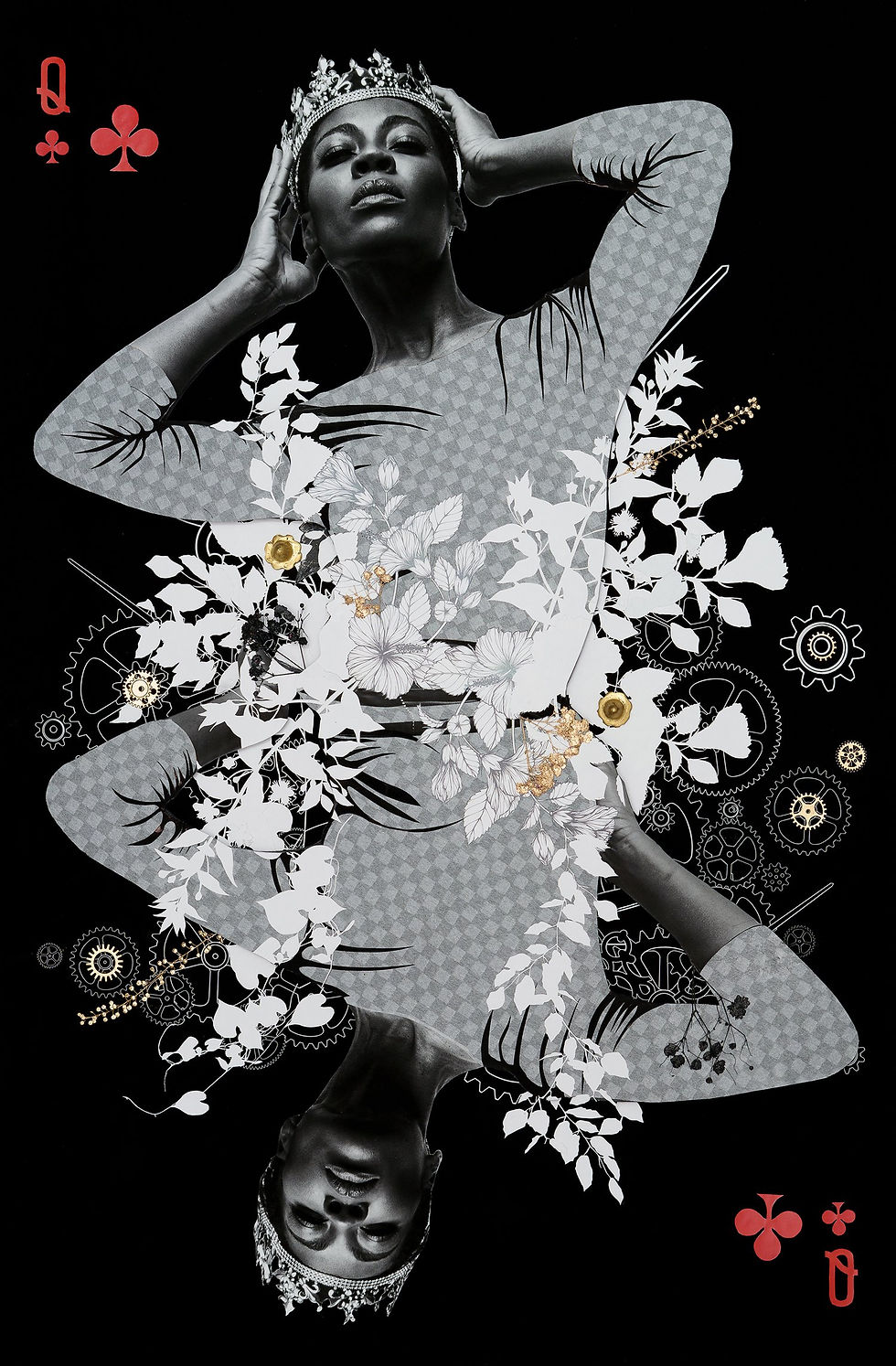Exploring cross-cultural identity: Manjari Sharma
- Anthony Roberts

- Aug 14, 2022
- 4 min read

Untitled from the Series Surface Tension, 2019
Manjari Sharma (b. 1979) is a photographer whose work explores cross-cultural identity and personal mythology, the way an individual makes sense and meaning of the world.
Sharma moved to the United States from India at age 21 to study photography, and has since adopted America as her home. Her work explores this multi-cultural perspective, exploring and reconciling the two dominant cultures in her life. She has also deconstructed and reconstructed her own belief systems by delving into centuries-old Hindu traditions of India and engaging deeply with modern fights to empower women and fight racial injustice. Her work is currently on display at the Birmingham Museum of Art in Birmingham, Alabama.
“My big idea is to tease something from a multicultural perspective. The differences or commonalities between the Eastern and Western world is what my work is about. Dissecting and studying in form and function the disparities between the two cultures the one I was born and raised in and the one I have now adopted, as an Indian born American.”

Image credit: R. Rodriguez
Manjari was born and raised in Mumbai, a bustling metropolis of over 21 million people. She grew up in a tight-knit community with loving parents. As a child, Manjari loved to take photographs with a boxed Kodak camera on family trips. But she never considered a career in photography until she received an unexpected certificate of achievement from a teacher who recognized her potential. Craving freedom and independence, Sharma left India when she was 21 to continue her photography studies at Columbus College of Art and Design in Columbus, Ohio. When she arrived, she felt culture shock. Compared to her society in Mumbai which was largely a group-oriented, American society was noticeably individual-oriented. “I think my first 6 months here were quite on par with a lot of international students where you race to your freedom…but once you have it you’re lonely.” Sharma found her footing behind the camera, which offered her a chance to observe, interrogate and make sense of the world around her.
After school, Manjari moved to New York City, an invigorating environment where she encountered many who were “different”. She would spend the next 10 years of her life there. In 2009, Sharma embarked on what would become her first major body of work, The Shower Series. Using her artistic license, she invited people into her home to take a shower in her bathroom while she photographed them. The resulting images capture subjects who were quickly disarmed by the warm water, relaxed and open. In conversations during the shooting, many opened up to Sharma about relationships with parents, childhood memories, regrets, lessons learned. Sharma’s ability to evoke this sort of vulnerability is a key element of her practice more broadly.

Untitled image from the Shower Series, 2009
Manjari Sharma
In 2011, Sharma felt led to explore the Hindu traditions of her childhood through a series called Darshan. She designed sets, complete with actors, costumes and props and took a series of photographs that reconstructed the myths with her own playful, insightful and respectful take. The project involved extensive research allowed her to immerse herself into her Indian cultural traditions, question them, and then develop her own reconstructed, personal mythology. The series was recently acquired by the Birmingham Museum of Art in Birmingham, Alabama.

Saraswati from Darshan Series, 2011
Manjari Sharma
In 2017, Sharma was invited by the Metropolitan Museum in New York to participate in a contemporary photography project where pairs of artists engaged in communication solely through images. Over the course of a five-month period, Sharma collaborated with fellow New York-based photographer Irina Rozovsky to create a series of 122 images. The series incorporated themes from the photographers’ personal lives, most dominantly pregnancy – both women were pregnant and due around the same time, a fact that neither knew until after the project started. It also addressed a sense of fear about the world as autocratic, intolerant regimes increasingly took power around the world. The work was acquired by the Met’s permanent collection in 2018.

BeetWatermelon, 2017
Manjari Sharma (l), Irina Rozovsky (r)
Sharma’s predominant aesthetic features intimate moments between photographer and subject or between people in the frame. These works express a range of emotion but most often show joy, hope and love. Her inspiration comes from strong emotions tied to events in her life -- sometimes small moments, other times significant life events. “What triggers me can be a conversation with my neighbor to a single blade of grass. My hope is to be open and receive whatever the universe sends my way.” Sharma’s artistic practice has expanded over time to include collage and video.
Sharma’s process varies depending on the project. Sometimes her projects are extensively researched, as was the Darshan series. Other times, they are more spontaneous as in her Water Series, which she photographed from the balcony of a hotel at a friend’s wedding. Sharma uses a variety of camera formats and photo editing tools to best capture images for a given project.

Image credit: Bossgirl
Manjari Sharma is represented by Assembly Projects, a women-owned gallery based in Houston. Large scale images from her Darshan series are currently on view at the Birmingham Museum of Art through January 15, 2023.
Sharma’s work is in the permanent collections of the Metropolitan Museum of Art in New York, the Museum of Fine Arts in Houston, the Carlos Museum at Emory University in Atlanta, and the Birmingham Museum of Art in Birmingham, Alabama. In 2018, she was awarded the Columbus College of Art and Design Alumni Award.

Untitled from the Series Surface Tension, 2019
Archival pigment print
20 (h) x 30 (w) in
$3,500

If you’d like to acquire this or other works by Manjari Sharma, email info@yourartmatch.com.
Listen to Manjari talk about her journey in this StoryCorp interview:
References:



Comments